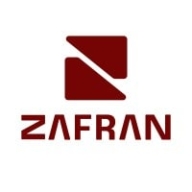


ServiceNow Security Operations and Armis compete in the cybersecurity management sector. Armis has an upper hand in feature sophistication, particularly in IoT security, while ServiceNow offers better support and pricing.
Features: ServiceNow Security Operations provides robust integration capabilities with existing tools, strong incident response workflows, and comprehensive dashboards for visibility. Armis focuses on advanced asset discovery, extensive IoT device security, and precise threat detection utilizing AI technology.
Room for Improvement: ServiceNow could enhance IoT-focused security measures and improve the precision of asset tracking. Its incident response workflows, though strong, could become more adaptable to evolving threats. Armis may consider better integrating with broader enterprise systems and enhancing its pricing flexibility. Its support could see improvements in accommodating general enterprise environments.
Ease of Deployment and Customer Service: Armis is known for a straightforward deployment process and specializes in tailored solutions for specific industry sectors. In contrast, ServiceNow Security Operations has a well-established deployment strategy supported by its platform integration experience. Both offer commendable support; however, ServiceNow's extensive ecosystem gives it a distinct edge in wider applications.
Pricing and ROI: ServiceNow Security Operations generally presents a lower setup cost with ROI focused on comprehensive service packages and scalable solutions for diverse enterprise sizes. Armis involves higher initial costs but focuses on long-term ROI from features specifically tailored for IoT security and asset management.

| Company Size | Count |
|---|---|
| Small Business | 4 |
| Large Enterprise | 6 |
| Company Size | Count |
|---|---|
| Small Business | 6 |
| Midsize Enterprise | 2 |
| Large Enterprise | 15 |
Zafran Security integrates with existing security tools to identify and mitigate vulnerabilities effectively, proving that most critical vulnerabilities are not exploitable, optimizing threat management.
Zafran Security introduces an innovative operating model for managing security threats and vulnerabilities. By leveraging the threat exposure management platform, it pinpoints and prioritizes exploitable vulnerabilities, reducing risk through immediate remediation. This platform enhances your hybrid cloud security by normalizing vulnerability signals and integrating specific IT context data, such as CVE runtime presence and internet asset reachability, into its analysis. No longer reliant on patch windows, Zafran Security allows you to manage risks actively.
What are the key features of Zafran Security?
What benefits can users expect from Zafran Security?
In industries where security is paramount, such as finance and healthcare, Zafran Security provides invaluable protection by ensuring that only exploitable vulnerabilities are addressed. It allows entities to maintain robust security measures while allocating resources efficiently, fitting seamlessly into existing security strategies.
Armis is a comprehensive cybersecurity solution used for continuous monitoring and threat detection across IT and IoT devices. It excels in spotting vulnerabilities, managing device compliance, and tracking assets to enhance security protocols and network management. Key features include real-time threat detection, comprehensive visibility, and granular risk assessments. Armis boosts organizational productivity by streamlining workflows and enhancing operational accuracy.
ServiceNow Security Operations is a cutting-edge security solution designed to elevate organizations' security incident response (SIR) processes through automation and orchestration. Going beyond traditional SOAR, this comprehensive Security Operations Suite integrates seamlessly with other ServiceNow products and offers a wide array of features. Its components include Security Incident Response (SIR), which automates incident workflows and offers pre-built playbooks; Security Configuration Compliance (SCC), continuously scanning and automating compliance tasks; Vulnerability Response (VR), prioritizing and remediating vulnerabilities; Threat Intelligence (TI), aggregating threat data for proactive threat hunting; and additional features like IT Service Management integration, Machine Learning and AI, reporting, and a mobile app. The benefits span improved incident response speed, reduced mean time to resolution, increased security posture, enhanced compliance, collaborative synergy between security and IT teams, and operational cost reductions.
We monitor all Risk-Based Vulnerability Management reviews to prevent fraudulent reviews and keep review quality high. We do not post reviews by company employees or direct competitors. We validate each review for authenticity via cross-reference with LinkedIn, and personal follow-up with the reviewer when necessary.